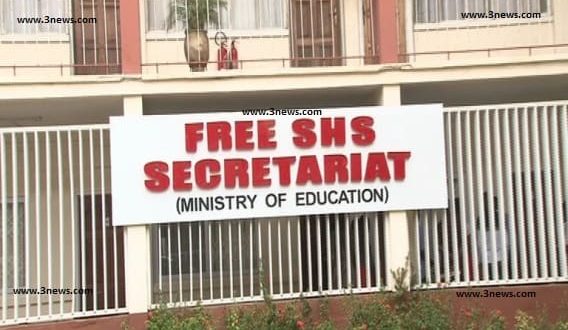Perhaps, it was a tad optimistic in hindsight, for supporters of the Free Senior High School policy to expect that the critics of the policy would be silenced by its successful implementation. When the policy took off in September 2017, many of us thought the whole nation would unite to support the policy, on account of its manifest advantages to the nation’s developmental trajectory. That has not, alas, proven to be the case.
As a proposal from the then presidential candidate of the New Patriotic Party, now President Nana Addo Dankwa Akufo-Addo, the policy was roundly pilloried by political opponents. It will be recalled that in the 2012 campaign in particular, communication from the then incumbent National Democratic Congress revolved mainly around the Free SHS policy and the fact that, in the eyes of the then president and his party, it was a pipe dream merely canvassed in the search for gullible votes. The story was no different in 2016.
After the NPP’s victory in 2016, the government kept faith with the people and a mere nine months into its tenure, made the dream a reality. From September 2017, the policy has allowed over a million students to attend senior high school absolutely free of charge. An analysis of the data shows that without the policy, some four hundred thousand less students would not have had the opportunity. To be certain, a policy that affects that many people every year is nothing to be sniffed at. In the history of this country, there has been no social intervention so significant and so widely impactful.
Critics of the policy, however, have refused to relent. From day one, many of our citizens have sadly sought to find and promote adverse news about Free SHS and where none were available, some have been happy to create some. We were warned by the doomsayers that Free SHS would compromise the quality of secondary education. Long standing difficulties in our educational sector are suddenly attributable to nothing else but the fact that many more of our young ones are– deservingly – securing secondary education. If you, like me, have been waiting for these critics to confidently say what they expect to happen to the hundreds of thousands of young people who would be left behind had it not been for the policy, then you have my sympathy.
Of course, this is not to say that all criticisms of the policy are in bad faith. Parents, teachers, school administrators, policy analysts and relevant stakeholders have the right and indeed the responsibility to vent their concerns, especially if they have alternative proposals and do so in a manner that is constructive and helpful to the policy discourse. And in fact, many of these have been espoused, especially in the last week. We have sadly, however, also had political and politically motivated actors jump on the bandwagon, eager to land some shots in the cause of ailing political ambitions. That is why, for example, we can have a former minister of education accuse young people of cheating in an international examination merely because their performance laid waste to the doom song she and others had been waiting to sing.
It is important, I believe, for us to examine and isolate the main, legitimate criticisms of the policy within the context of problem-solving and solution-driven discourse.
First, there are many who believe that the policy should have been targeted at only those who are unable to pay, understood in the social protection literature as means testing. In the last few weeks, we have been treated to the protestations of parents and some young people who believe that they should be allowed to pay in order to get better quality of facilities in school. Never mind, of course, the complaints from the same people, sometimes in the same breath, that they have been forced to pay for extra classes, placing a toll on their finances. When the framers of our constitution made secondary education a right that should be progressively free to access, they did not accord special status to any class of students. This is because they recognized that social rights are diluted in impact and acceptance if only some classes of people are accorded it. For Free SHS to be sustained in the long term, it has to be open to all. That is before we get to the likely abuse that means (or perhaps proxy means) testing would be open to. Do not be surprised if the same people asking to be allowed to pay are the very people who would pull at every string to be placed in the “privileged” non-paying group were we to adopt this two-tier system.
Second, there have been some concerns regarding the double track calendar configuration, a system that has enabled government to enroll so many more students through optimum utilization of existing facilities. Available data suggest that this innovation alone doubled enrolment at double track schools, allowing nearly two hundred thousand students into the secondary school system in the first year of implementation alone. It can be argued that while both the traditional agrarian calendar and double track have been proven empirically to be beneficial to students, double track appears to be more favourable to students from disadvantaged backgrounds, the very group who stand to gain the most from the Free SHS policy.
Third, opponents claim that the system has reduced the contact hours that students had previously, pointing at the number of days that some students spend in the school and comparing with other tracks and previous systems. In fact, a review of the dataset would show that the opposite to be the case. Under the previous trimester system, students spent eight months and two weeks in school each year, with a total of one hundred and eighty teaching days and one thousand and eighty contact hours. Under the current semester system, they spend two weeks less in school and have one hundred and sixty-two teaching days but manage to clock one thousand, one hundred and thirty-four contact hours each year. This has been possible due to the innovative use of time and facilities inherent in the double track system. If we are looking for reasons for the success of the “Akufo-Addo graduates,” perhaps we should look at these innovations, rather than seek perverse comfort in misplaced accusations of misconduct.
It should also be noted that the Covid-19 pandemic wreaked havoc on the school system. For close to a year, schools were shut and in-person learning suspended. Circumstances such as this would have interfered with the school system pre-double track, so we must understand if getting back on track requires some adjustments.
Perhaps, the favourite attack from skeptics is the supposed lack of funds to run schools now that students are not paying fees. In fact, it could be argued that the reverse is true. This year alone, government will spend GHc 1.97 billion on the policy, a significant increase from the GHc 400 million it spent in the very first year of implementation. A computation of the figures shows that GHc2,312 is spent per student per year. Despite the difficulties of Covid-19, government is still making good on its commitments and for this academic year, has released funds for years 2 and 3 students to all assisted secondary schools. It is hard to imagine that with all these funds available, charges of underfunding can be sustained. Admittedly, there are some management and accountability issues at the school and local levels that are being addressed, but on the whole, government cannot be said to be unable to pay for the policy.
Change, no matter how desirable, can be a long and difficult slog. No one imagined, least of all President Akufo-Addo, that opening the doors to our secondary schools for everyone desirous of entry, including many that would not have qualified under the old system, would be easy or universally popular from day one. That is why he deserves even greater plaudits for the bold and innovative steps he has taken to follow through on what many dismissed as entirely impossible. When a generation from now, the benefits of a more literate, numerate and better skilled workforce manifest in sustained economic development, we must all remember where we stood in these moments. And if you were among those tearing it down rather than building it up, I hope that you have the courage and candor to admit to the role you played.
Prince Hamid Armah, PhD
The writer is the Member of Parliament for Kwesimintsim and Vice Chairman of the Parliamentary Select Committee on Education. He was previously Director-General of the National Council for Curriculum and Assessment (NaCCA).
Source: 3news.com
Disclaimer: MyGhanaMedia is not responsible for this report and its content.There are four types of content published on MyGhanaMedia daily: curated content; syndicated content; user-generated content; and original content.
Send your news stories to myghanamedia@gmail.com and Chat with us via WhatsApp on +233200818719
 MYGHANAMEDIA.COM Best Source Of Latest News
MYGHANAMEDIA.COM Best Source Of Latest News




